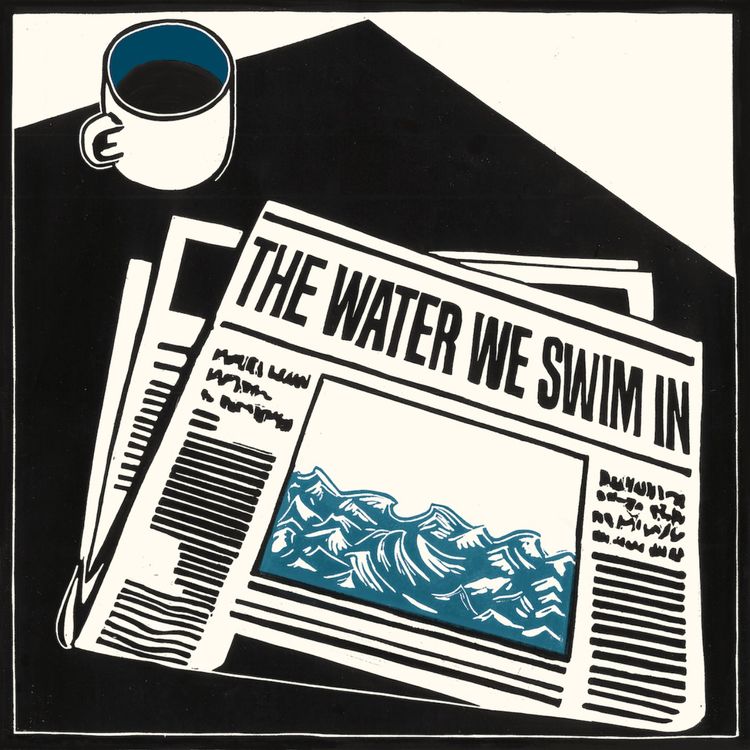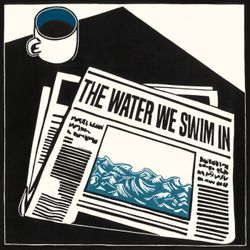Share

The Water We Swim In
2. Filthy Bags of Excrement (SYSTEMS THINKING)
In the second episode of the series, we explore our relationship with nature.
It opens with the story of Fritz Harber - a German chemist and a man of contradictions. Accused of war crimes and nominated for a Nobel Peace Prize in the same year, Harber gave the world two opposing inventions: fertiliser, allowing us to feed the growing populations of the world, and chlorine gas, which has wreaked devastation.
Through this story, we discover how the agricultural industry became intertwined with the arms industry in the early 21st Century, and how this marrying of production and destruction was perhaps not a freak aberration, but rather the logical consequence of Western philosophy and science...
...and we begin to understand that, perhaps, there is a different way to interact with the world around us.
More episodes
View all episodes


Introducing: The Water We Swim In
03:15|Introducing: The Water We Swim In, a new series investigating the system-change necessary to tackle the climate crisis. Releasing 5th June 2023.
1. The Ultimate Insider (CLIMATE CHANGE)
52:46|"Climate change"....What feeling does it evoke? Boredom? Apathy? Despair?In our first episode we explore why our approach to climate change feels stagnant, and how we might fix it.Investigating the efficacy of our most trusted mitigation tactics - from conscious consumerism to international treaties - we reveal a problem at the heart of our methods. No more neutral, technological, ‘green’ solutions...it’s time to get political.Featured in this episode, you'll find: activist Tolmeia Gregory, economist Simon Mair and lawyer & advisor James Gustave Speth.Check out our website at waterweswimin.co.uk and socials @twwsipod
3. The Missing Circle (ECONOMIC GROWTH)
58:12|The episode explores the uniquely human psychology of storytelling, our innate capacity for making sense of data by creating narratives, and how damaging these narratives can be when we believe in them too much. By asking about the story that is most integral to our society, we arrive at the story of our economy: what it is, where it comes from, and what it's missing.Together with some top economists, including the legendary Herman Daly, we question our goal of perpetual economic growth and debunk the idea that it is compatible with a green agenda. We also propose the writing of a new economic story, one that replaces GDP with a new form of capitalism unlike
4. Proud to be a Commoner (PUBLIC WEALTH)
52:19|The fourth episode opens with a sentencing. It’s 2017, and in Aylesbury Crown Court a repeat offender is accused of a terrible crime. Showing little remorse, they are admonished for their behaviour by the judge: ‘Shocking!’ ‘Disgraceful!’ The victim of this disgraceful crime? That would be us.In this episode, we warn listeners of a great theft of our country’s social, cultural, and natural commons, focusing on the privatisation of the UK’s fresh water, and its subsequent befouling in the name of a better profit margin. We explore the now-alien notion that nature is owned by all, and trace it back to a near-forgotten document enshrined at the same time as the Magna Carta.In doing so, we are first introduced to one of the West’s most influential and pervasive ideologies, to ‘the water we swim in’: Neoliberalism. And ask…what would happen if we asked for compensation for what has been stolen from us?Listen now!
5. "The Most Unfree" (DEMOCRACY)
57:31|Our fifth episode opens at an ‘EcoArt’ performance night, held at the Working Men’s club in Bethnal Green. Showcasing how alienating the ‘hippy eco-warrior’ protest movement can be – with its drastic actions, and dramatic generalisations (“people power vs. corporate greed”) – we ask: why do some of us feel that extreme protest is the only option?To investigate this, we follow the battle between a small group of claimants and the Oil and Gas Authority and start to uncover a seemingly symbiotic relationship between the government and the fossil fuel industry. Which leads us to some uncomfortable questions: have corporations impacted our democracy, how did this happen…and were the hippies right after all?
BONUS: North Sea Update
06:26|A short check in and update on what's happening in the fight against fossil fuel expansion in the North Sea, following on from Episode 5 "The Most Unfree".
BONUS: Jeremy Lent on curbing corporate power
57:51|In Episode 5 "The Most Unfree", we investigated the damage that neoliberalism has inflicted upon our democracy and the enormous power corporations have amassed in our society...but we didn't have much time to touch on solutions. So, this week we're taking a break from the usual style of episode to bring you a very special bonus interview with the brilliant JEREMY LENT, in which we discuss his 5-point proposal for curbing the power of corporations in our society. Described by journalist George Monbiot as “one of the greatest thinkers of our age”, Jeremy, is an author and integrator whose work investigates the underlying causes of our civilisation’s existential crisis, and explores pathways toward a life-affirming future.His award-winning book, The Patterning Instinct: A Cultural History of Humanity’s Search for Meaning, explores the way humans have made meaning from the cosmos from hunter-gatherer times to the present day. His new book, The Web of Meaning: Integrating Science and Traditional Wisdom to Find Our Place in the Universe, offers a coherent and intellectually solid foundation for a worldview based on connectedness that could lead humanity to a sustainable, flourishing future.